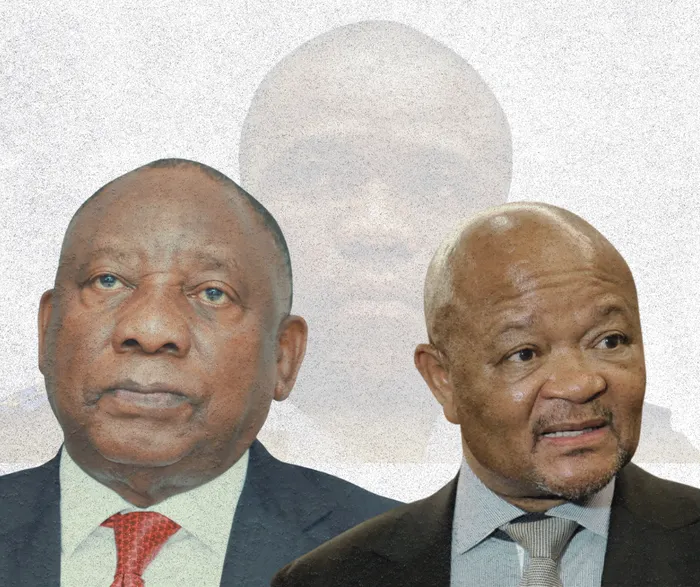
Prince Mashele opined that President Cyril Ramaphosa's hesitancy to outright remove embattles Police Minister Mchunu, opting instead for suspension, demonstrates a disturbing type of complicity.
Image: IOL
IN A recent interview, political analyst and commentator, Prince Mashele, launched a series of explosive allegations against President Cyril Ramaphosa, insinuating that the President was a “criminal who is going to be arrested at some point”.
At the heart of Mashele’s claims was the assertion that Ramaphosa and suspended Minister of Police, Senzo Mchunu, who is embroiled in allegations of corruption, are “partners in crime”. Mashele also opined that the President’s hesitancy to remove Mchunu outright, opting instead for suspension, demonstrated a disturbing type of complicity.
The insinuation is that Ramaphosa, rather than taking decisive action against corruption, is safeguarding his allies within a deeply entrenched system for fear of being arrested in the future.
The allegations extend beyond a few individuals, revealing a troubling trend within the ANC. Mashele’s commentary points to corruption that has become endemic, not just isolated to figures like Mchunu but sprawling through various government sectors, including the Ministry of Higher Education and the Ministry of Human Settlements, all led by ANC National Executive Committee (NEC) members.
Ironically, this current ANC NEC came into power on a platform that vehemently condemned the alleged corruption of former President Jacob Zuma. However, the persistence of these scandals demonstrates that corruption is no longer an issue tied to a single politician; it has become a drug of choice for a political elite that seemingly does not care about what the nation thinks.
The absence of substantive action against figures such as Mchunu, Minister Nobuhle Nkabane, Minister Thembi Nkadimeng, and others, particularly amid rising public discontent, further exacerbates the perception that the ANC is operating with impunity.
It also raises concerns about whether Ramaphosa is acting from a position of strength or caution, particularly in light of ongoing scandals such as the Phala Phala farm controversy and the alleged corruption involving Iran and MTN, which is reportedly under investigation by US security agencies.
In a political landscape where corruption is clearly institutionalised, can the ANC still be trusted to lead the nation? Alternatively, is the ANC still a legitimate leader of society?
The divide among pundits regarding Ramaphosa’s potential connections to corruption adds another layer of complexity to the situation. Figures such as Isaac Mashaba have called for the President to step down, arguing that his continued leadership is indefensible in light of the corruption allegations.
However, others warn that such a move could precipitate instability within the ANC and the country, given that many within the NEC are not deemed “fit” to lead.
For South Africa, also Africa’s largest economy, the stakes are alarmingly high. Instability could cause ripples that affect not just governance but also economic performance, investor confidence, and public service delivery.
An environment of political chaos often leads to economic stagnation, as uncertainty deters much-needed foreign investments and exacerbates the woes facing an already struggling economy.
However, being silent in the face of impunity is unjustifiable.
It is therefore important to recognise that the backdrop of these claims also includes serious concerns, such as the alleged dealings between the President and Iran when he was still chair of MTN and the persistent controversies surrounding the Phala Phala scandal.
These elements complicate the narrative, making it challenging for Ramaphosa to distance himself from corruption allegations.
With trust in the ANC leadership at an all-time low, the nation is left to wonder if governance under the ANC will ever be aligned with the principles of justice, accountability, and integrity. Without a shift away from this entrenched culture of corruption, the path forward remains perilous and uncertain.
* Phapano Phasha is the chairperson of The Centre for Alternative Political and Economic Thought.
** The views expressed here do not reflect those of the Sunday Independent, IOL, or Independent Media.